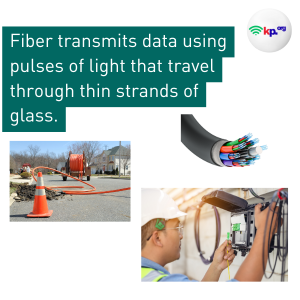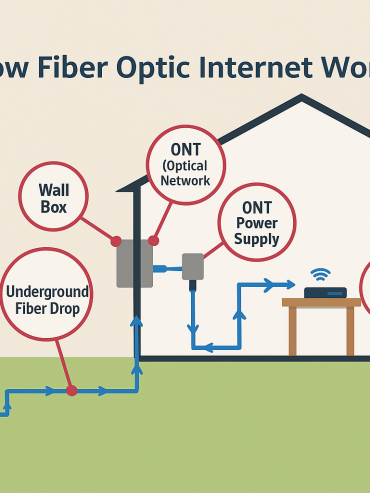Gusto ko Konektado ka, kasi gusto ko happy ka!
SOURCE: YouTube
Konektadong Pinoy – I’m connected with Sen. Imee Marcos and DICT Sec. Henry Aguda

SOURCE: YouTube
Speech of Mel Velasco Velarde at the Indo-Pacific Business Forum in Tokyo, Japan, January 12, 2023
Konektadong Pinoy is for the greater good

By: Gary B. Teves – @inquirerdotnetPhilippine Daily Inquirer / 05:11 AM August 18, 2025
A letter from the country’s biggest telecommunications companies was recently sent to President Marcos, coursed through Department of Information and Communications Technology (DICT) Secretary Henry Aguda, regarding the Konektadong Pinoy bill. The letter highlights the bill’s supposed far-reaching negative implications for the data transmission sector. Their concerns deserve careful consideration. However, they must be weighed against an undeniable reality: the Philippines continues to lag behind its Asean peers in internet speed, affordability, and accessibility, a persistent gap that continues to stifle economic growth and widens the digital divide.
On the public consultation process. Dominant telecom companies stated they were not consulted over a bill that deals with internet services. I know from my experience as a former legislator before joining the Cabinet that the legislative process involves several hearings and consultations and calls for comments. The records of the House of Representatives and the Senate show that the telcos were invited and sent representatives to numerous hearings and technical working group meetings.
SOURCE: INQUIRER.NET
Fiber Optics Broadband
The Gold Standard for High-Speed Internet
Fiber Optic Broadband is the premier choice for enterprises and households seeking ultra-fast, stable, and future-ready internet. It delivers lightning-speed data through strands of glass or plastic fibers, capable of transmitting information at the speed of light.
With unmatched bandwidth, low latency, and a secure physical infrastructure, fiber optics ensures seamless business operations, high-definition streaming, crystal-clear video conferencing, and the ability to handle multiple devices without lag.
How does it work?
Think of fiber optics as internet on beams of light.
Instead of using radio waves (like wireless broadband) or copper lines (like DSL), fiber transmits data using pulses of light that travel through thin strands of glass. These fibers are as thin as a human hair but can carry massive amounts of data over long distances with minimal loss.
Fiber-to-the-Home (FTTH): Direct fiber line to households for ultra-fast personal internet.
Fiber-to-the-Building (FTTB): Dedicated fiber connection to offices or enterprises for mission-critical connectivity.
Fiber-to-the-Cabinet (FTTC): Fiber runs to a street cabinet, then copper cables connect the final distance to homes or offices.
In short, fiber optics is like having a superhighway for data, where light signals zoom at near the speed of light, giving you reliable and future-proof internet.
Benefits at a glance:
- Speeds up to Gigabit and beyond
- Extremely low latency
- Scalable bandwidth for growing needs
- Highly secure and interference-free
- Future-ready infrastructure for next-gen apps
DICT chief Aguda defends Konektadong Pinoy Act

By TED CORDERO
GMA Integrated News
June 26, 2025
Department of Information and Communications Technology (DICT) Secretary Henry Aguda is backing the passage into law of the Konektadong Pinoy Act, which faces opposition from various telecommunications industry stakeholders, saying it would increase competition in the country’s telecoms space and eventually lower cost of services for the benefit of the consuming public.
“We’ve already endorsed it, me and Secretary [Arsenio] Balisacan of DEPDev [Department of Economy, Planning, and Development], we’re awaiting the schedule on when it will be taken to Malacañang,” Aguda told reporters at an informal briefing in Quezon City on Thursday.
“Mataas ang chance na matutuloy na ‘yun [There’s a high chance it will become a law],” the DICT chief added.
However, he clarified that he does not want to preempt what President Ferdinand “Bongbong” Marcos Jr.’s decision would be.
Critics of the Konektadong Pinoy Act include the Philippine Chamber of Telecommunications Operators (PCTO), composed of the country’s leading telcos, and the Philippine Association of Private Telecommunications Companies (PAPTELCO).
PCTO called for a review of the ratified version of measure, citing national security concerns and weakening of regulatory oversight among new entrants in the country’s connectivity service sector.
PAPTELCO, on the other hand, urged Marcos to veto the bill also flagging national security issues as new players would no longer be required to secure a legislative franchise.
Under the measure, new data transmission players are no longer required to secure a legislative franchise or Certificate of Public Convenience and Necessity (CPCN).
Aguda, in the bill’s defense, said that “there’s no denying that Konektadong Pinoy will increase competition in the industry… and nobody is going to deny that [increased] competition will be good for the industry.”
“Konektadong Pinoy squarely addresses affordability because the more competition… the public will have more choices, which would bring down prices,” the DICT secretary said.
The ICT chief said major telcos would even benefit from increased competition as they could divert revenues from end-users to wholesale as new entrants could tap into their existing internet infrastructure.
“Actually maganda nga ‘tong Konektadong Pinoy sa major telcos kasi ‘yung mga magtatayo para sa ‘middle mile’ makikigamit ng kanilang broadband service kasi hindi naman sila magtatayo ng transmission na malaki eh… So malilipat ang revenue nila from retail to maybe wholesale,” Aguda said.
(Actually this bill will be good for the major telcos because those putting up the “middle mile” will need to use their broadband service, because they won’t be putting up a big transmission…so their revenue will be transferred from retail to maybe wholesale.)
As to concerns on national security and other issues raised by critics of the bill, the DICT secretary said the ICT Department and its attached agency, the National Telecommunications Commission (NTC), would address it in crafting the measures implementing rules and regulations (IRR) once the bill is signed into law.
“We just have to be very exacting on the specific concerns of the industry. What I was hearing were… one is national security… we hear them and we’ll address that with the help of the telcos. Another concern was… spectrum refarming… the NTC will set the specific regulatory [oversight] on frequency allocation,” Aguda said.
On PH’s dip in Mobile Connectivity Index
The DICT chief also emphasized that the Konektadong Pinoy Act, which he said would result in increased competition in the telecoms space, would help in improving the Philippines’ ranking in the GSM Association Mobile Connectivity Index.
The latest edition of the GSMA’s index—which assesses countries’ performance on key factors in adopting mobile internet such as infrastructure, affordability, consumer readiness, and content and services— saw the country’s score drop by 0.52 to 67.69.
Aguda said that “while this marks a slight decline from the previous year, it serves as a timely reminder of the work that remains in achieving universal, reliable, and affordable digital access for all Filipinos.”
“We see this report not as a setback, but as a guide that reinforces our focus on closing the digital divide, in line with President Ferdinand R. Marcos Jr.’s directive to have an inclusive and digitally connected Philippines,” he said.
The DICT reiterated that the agency is pushing for the passage of the Konektadong Pinoy Act, which he described as a “landmark legislation” that promotes open-access policies, infrastructure sharing among telecommunications providers, and streamlining of permitting processes for broadband rollout.
“By lowering operational barriers and fostering competition, the measure is expected to reduce internet costs by 2028, while accelerating the deployment of high-quality connectivity across urban and rural areas alike,” Aguda said.
The ICT Department, he said, is also expanding the Free Wi-Fi for All Program, particularly in remote and underserved communities.
Pres. Bongbong Marcos attends PH-India Business Forum (August 7, 2025)
SOURCE: YouTube
NOW-USTDA ink agreement to deploy 5G network

Now Telecom Co. Inc. has signed a grant agreement with US Trade and Development Agency (USTDA) to support the Velarde-led telecom firm’s deployment of a nationwide stand-alone 5G mobile and fixed wireless network in the Philippines.
USTDA has agreed to provide a grant on behalf of NOW Telecom to fund a technical assistance (TA) and 5G pilot network launch to support the company’s 5G deployment.

USTDA Director Enoh Ebong left and Now Telecoms CEO Mel Velarde shake hands after the signing of the LOI
The Letter of Intent (LO) I was signed by USTDA Director Enoh T. Ebong along with NOW Telecom Chairman and Chief Executive Officer Mel Velasco Velarde, during a ceremony at the Annual IPBF co-hosted by the Governments of Japan and the United States, the U.S. Chamber of Commerce, and the US-ASEAN Business Council on January 12. The IPBF is a business forum aimed to promote trade, investment and economic cooperation between the United States and Indo-Pacific nations including the Philippines.
“Our goal is to deliver a clean and secure 5G network that will help achieve social and financial mobility, reduce inequality, improve health and education, and spur economic growth for the Filipino people,” Velarde said.
“Our partnership with USTDA will help us achieve this important mission,” he added.
The TA will provide NOW Telecom with the necessary analysis, designs and plans for phased implementation of the project and conduct a 5G pilot network at multiple sites in Metro Manila to validate network performance, test 5G use cases, and provide data to inform larger scale deployment.
In addition, the TA includes the examination of available various financing schemes including grant, equity, and debt financing from potential donors, investors and financial institutions, and an assessment of the level of interest of funding organizations, the amount and terms of potential financing, and any specific financial requirements for the full-scale implementation of the project.
The USTDA funding for TA and a pilot project will support NOW Telecom’s deployment of a 5G network to help meet growing household and industry demand for reliable and secure digital services in the Philippines.
The TA will be undertaken by Bell Labs Consulting represented by Nokia of America Corp. as the prime contractor, a company registered in the US that is engaged in research and scientific development in the telecommunications sector.
The objective of the TA and 5G pilot launch is to support Now Telecom’s plan to launch a 5G stand-alone network in the Philippines that will contribute to the overall improvement of broadband connectivity in the country and increase competition in the Filipino market.
NowTel’s 5G pilot launch would use network and radio equipment, core network, and software developed and supplied by Nokia Americas and its subsidiaries.
Source: NOW Corporation
‘Konektadong Pinoy’ bill lapses into law

MANILA – The “Konektadong Pinoy” bill has lapsed into law, ushering in a major policy reform intended to expand internet access and boost competition among service providers nationwide.
Palace Press Officer Claire Castro issued the announcement through a text message to reporters on Sunday.
The new law, which was not signed but allowed by President Ferdinand R. Marcos Jr. to lapse into law, seeks to streamline licensing procedures, promote infrastructure sharing, and allow new players to invest in broadband and data transmission facilities without the need for a congressional franchise — a requirement critics have long described as “outdated” and unique to the Philippines.
The measure is expected to accelerate the rollout of internet services to tens of thousands of unserved villages across the archipelago, particularly in remote communities and schools where connectivity remains limited.
However, some telecommunications firms have raised concerns, arguing that opening the sector to new entrants without a legislative franchise could put them at a disadvantage.
They said their competitors would be able to use existing infrastructure without obtaining cybersecurity clearance first.
PLDT Inc., one of the country’s largest service providers, even hinted at questioning the law before the courts, warning that the reform could lead to regulatory loopholes and unfair market practices.
The law comes amid persistent complaints over slow and expensive internet service in the Philippines, which has ranked among the lowest in Southeast Asia in terms of broadband affordability and reliability.
The Speedtest Global Index for July 2025 placed the Philippines 70th out of 104 countries in mobile speed and 54th out of 153 nations in fixed broadband speed.
Brunei is 12th overall and No. 1 in Southeast Asia in mobile speed; while Singapore and Thailand are Nos. 1 and 10, respectively, in fixed broadband speed.
Despite government-led initiatives such as the Free Wi-Fi for All program and the establishment of the Department of Information and Communications Technology (DICT), connectivity gaps remain a barrier to education, commerce, and governance.
Marcos, in his State of the Nation Addresses, had consistently underscored digitalization as a key plank of his administration’s agenda, highlighting the need to “connect every Filipino” to opportunities through stronger digital infrastructure.
The DICT is expected to release the implementing rules and regulations of the law within 90 days. (PNA)
Source: Philippine News Agency
NINETEENTH CONGRESS OF THE REPUBLIC OF THE PHILIPPINES

AN ACT
ESTABLISHING A COMPREHENSIVE AND INCLUSIVE DATA
TRANSMISSION AND CONNECTIVITY FRAMEWORK FOR THE PHILIPPINES
https://legacy.senate.gov.ph/lisdata/4417740164%21.pdf
Source: Senate of the Philippines
Open Access in Data Transmission Act

he Konektadong Pinoy Act also known as Open Access in Data Transmission Act is an internet and telecommunications and the bill passed by the 19th Congress of the Philippines and lapsed on August 24, 2025.[1] The bill contains provisions encouraging the development of data transmission infrastructure and removing any barrier to competition in data transmission services. It also aims to protect and promote the internet as an open platform enabling consumer choice, freedom of expression, end-user control, competition and freedom to innovate without permission.
Source:Wikipedia
JOINT STATEMENT OF SUPPORT KONEKTADONG PINOY A Pro-Filipino, Pro-Consumer, Pro-Competition Bill
Revolutionizing Broadband with NOW Fiber Air: Seamless Connectivity Across the Miles
Revolutionizing Broadband with NOW Fiber Air: Seamless Connectivity Across the Miles
In the ever-evolving world of internet connectivity, NOW Fiber Air stands out as a cutting-edge solution that promises trusted bandwidth and seamless transfer to end-users. This innovative broadband service breaks down the traditional barriers of network infrastructure, ensuring reliable and high-speed internet access from long-haul to last-mile delivery.
Understanding the Core Components of NOW Fiber Air Broadband
NOW Fiber Air operates on a multi-layered network model, divided into distinct segments: First Mile, Middle Mile, and Last Mile. Each segment plays a crucial role in delivering secure, end-to-end trusted bandwidth.
First Mile: The Foundation of Global Connectivity
The journey begins in the First Mile, where NOW Fiber Air leverages satellite and global peering technologies. As depicted in the diagram, a satellite orbits the Earth, connecting to the mobile network operator (MNO) infrastructure. This setup allows for:
- Long-Haul Transmission: High-capacity data transfer over vast distances, peered with international networks for optimal routing.
- Trusted Bandwidth: Ensuring data integrity from the source, with secure encryption passed through ISP facilities.
This initial stage sets the stage for efficient data aggregation, minimizing latency and maximizing throughput right from the global entry point.
Middle Mile: Bridging the Gap with Robust Infrastructure
Moving into the Middle Mile, the diagram illustrates a network of towers, buildings, and multi-service operator (MSO) hubs. Here, the focus shifts to aggregation and distribution:
- MSO Hubs and Towers: Centralized facilities that manage traffic from multiple points, using advanced antennas and fiber optic backbones.
- End-to-End Trusted Infrastructure: Bandwidth is secured and passed through ISP facilities, ensuring compliance and reliability.
- Multi-Point Access: Flexible connections that adapt to varying terrains and urban densities.
This segment is vital for scaling operations, where data from the First Mile is consolidated and prepared for local distribution, reducing bottlenecks and enhancing overall network performance.
Last Mile: Delivering to the End-User
The final leg, the Last Mile, is where NOW Fiber Air truly shines in providing direct, seamless access. The diagram shows users connected via wireless endpoints, laptops, and mobile devices:
- Trusted Bandwidth Seamless Transfer: End-users receive uninterrupted, high-speed internet without the need for extensive wiring.
- Access Hubs and Antennas: Multi-point setups ensure coverage in diverse environments, from urban apartments to rural areas.
- User-Centric Design: Icons of people and devices highlight the ease of connection, making broadband accessible to all.
By utilizing fixed wireless access combined with fiber backhaul, the Last Mile eliminates common pain points like installation delays and coverage gaps.
The Advantages of NOW Fiber Air Broadband
What sets NOW Fiber Air apart? Based on the integrated model shown:
- Seamless End-to-End Connectivity: From satellite to smartphone, the service ensures trusted bandwidth throughout.
- Scalability and Flexibility: Multi-point access hubs allow for rapid deployment and adaptation to growing demands.
- Security and Reliability: Passed through verified ISP facilities, data remains protected against threats.
- Global Reach with Local Impact: Long-haul capabilities meet last-mile precision, ideal for underserved regions.
This architecture not only boosts speeds but also supports emerging technologies like 5G integration and IoT applications.
Why Choose NOW Fiber Air for Your Broadband Needs?
In a digital age where connectivity is king, NOW Fiber Air Broadband offers a future-proof solution. Whether you’re a business needing robust middle-mile infrastructure or a household seeking reliable last-mile access, this service delivers.
Watch: https://youtu.be/231oQ10pHtg
Visit: https://nowfiberair.ph/
‘Konektadong Pinoy’ bill for broader, competitive internet access lapses into law

By Harlene Delgado, ABS-CBN News
Published Aug 24, 2025 03:27 PM PHT
Updated Aug 24, 2025 07:04 PM PHT
MANILA (UPDATED) — The Palace said that the Konektadong Pinoy bill, which seeks to broaden internet access, streamline licensing processes and reduce connectivity costs, has lapsed into law.
Bills forwarded to the Palace for the President’s signature face enactment or veto. Bills may also lapse into law when no action is taken on them 30 days after they are transmitted to the Palace.
The bill allows new and smaller players to enter the data transmission sector without seeking a legislative franchise and a Certificate of Public Convenience and Necessity.
The Department of Information and Communications Technology (DICT) in a release last March said the bill will address roadblocks brought by outdated laws “that [have] stifled competition and innovation for years.”
In a statement on Sunday, the DICT welcomed the development, with Secretary Henry Aguda saying that the agency will immediately convene stakeholders to draft the Implementing Rules and Regulations (IRR), co-leading the process with the Department of Development (DepDev).
The IRR must be finalized within 90 days.
“By making internet access truly universal, we are creating a foundation for better education, e-commerce growth, accessible government services, and stronger communities,” Aguda said. “The President’s vision is clear: no Filipino should be left behind in the digital age.”
Some groups and telecommunication companies have raised concerns over the bill due the removal of the legislative franchise requirement for new telco players and cybersecurity concerns.
Telco giant PLDT recently said it may challenge the constitutionality of the bill once enacted into law citing concerns on potential discrimination against telco players who have invested in upgrading the country’s telco infrastructure.
“You cannot ask us to open all our assets to your access and deprive our subscribers of the infrastructure that we built for them,” PLDT Senior Vice President and Senior Legal Advisor to the Chairman Marilyn Victorio-Aquino said during the PLDT First Half Financial and Operating Results press briefing on August 12.
The PLDT official added that the bill presents potential cybersecurity risks “because within the first two years of Open Access, the data service providers can access our assets without cybersecurity clearance.”
In January, President Ferdinand Marcos Jr. certified the bill as urgent to “facilitate the development of robust and resilient communications infrastructure” in the country.
He also said this is to establish a “competitive and innovation-driven data industry that will safeguard the public interest, promote fair competition, encourage investment in critical digital networks, and equip the government and the public with the necessary tools to maintain vital communications channels and effectively respond to emergency situations.” (ABSCBN News)




